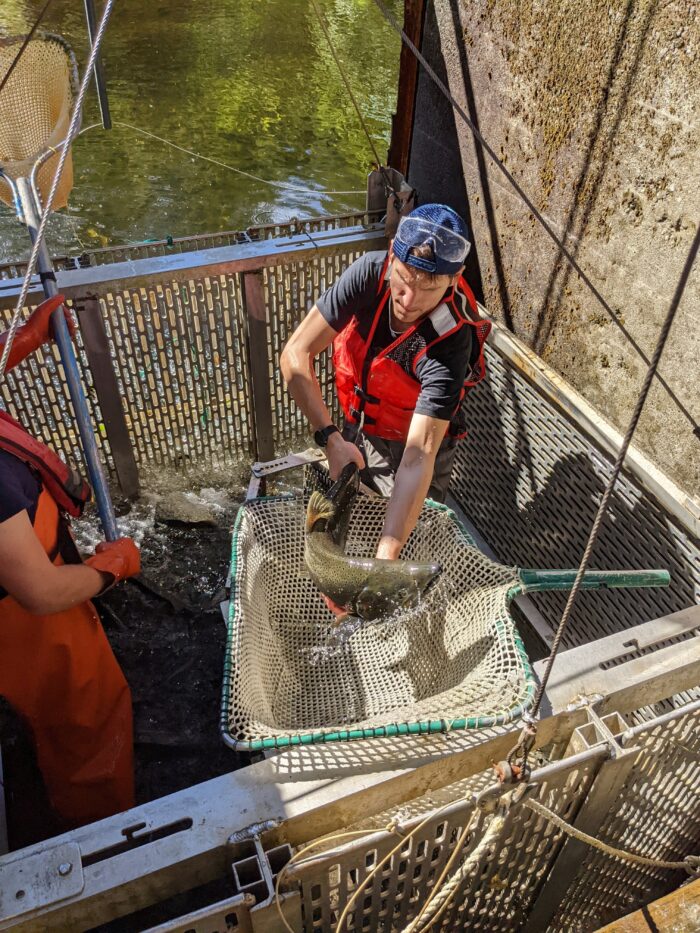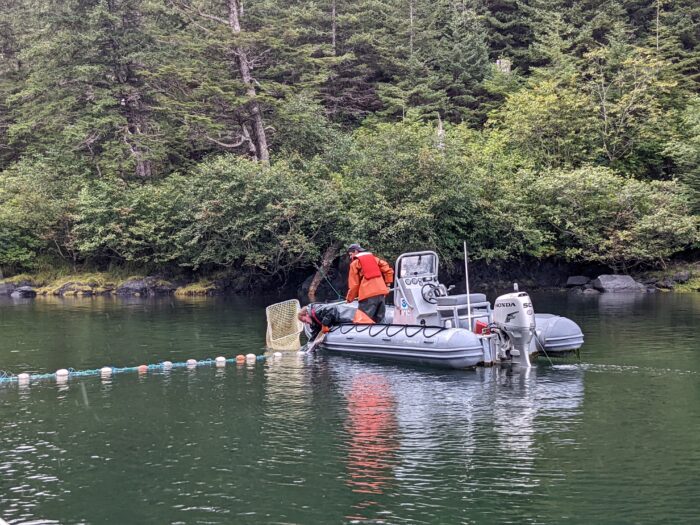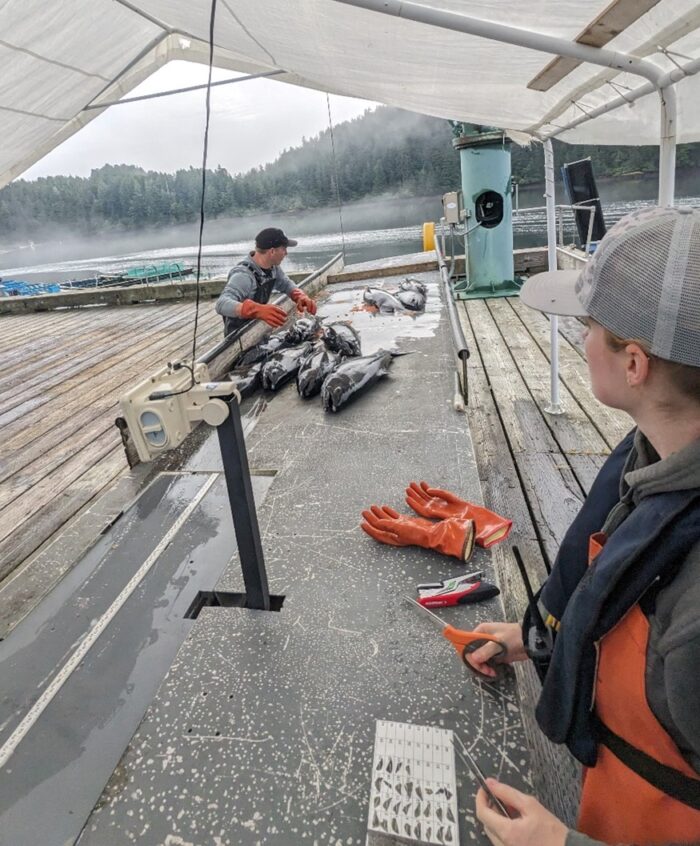Teacher in the Field
Who, what, where?
We are piloting a NOAA Teacher in the Lab experience with scientists at Little Port Walter Research Station in Alaska, which is the primary field research facility for the Alaska Fisheries Science Center’s Auke Bay Laboratories in Juneau, Alaska.
We are looking for one NOAA Teacher at Sea (TAS) alum, who has completed all of the NOAA TAS program requirements and is a current full-time teacher or informal educator, to participate in this pilot project.
Little Port Walter Research Station is located 110 miles south of Juneau, Alaska, near the SE tip of Baranof Island. The station is only accessible by boat or float plane, with participants arriving by float plane from Juneau.
When?
The preferred placement time is between August 26th – September 27th, 2024, though earlier placement in June or July could be considered. Preference will be given to applicants available during preferred time.
The time commitment is 10-14 days minimum; with the possibility of additional time; the participant must have flexibility around the final dates since travel to the island is weather dependent
What will the research entail?
While the experience is land-based, the majority of the work will be conducted on floating docks with narrow walkways and small boats (<35’ length). Station operations are generally 8am-5pm on weekdays with primary activities focused on capturing adult Chinook salmon through net, trap, and fish ladder and the subsequent spawning of these fish.
Additional projects may include collecting fish and shellfish tissue for contaminants, low tide sea star surveys, hook and line surveys of various fish species, monitoring of experimental oyster and sea cucumber cages, and water sampling for eDNA and other parameters.
Activities outside of work hours can include hiking, fishing, canoeing, and beachcombing.
Participants should also be aware that brown bears are common around the station and nearby Sashin Creek, electric fences are present, and appropriate safety training and equipment will be provided upon arrival.
Food, lodging, and travel
Food and lodging are provided in a shared common building. The teacher would have their own bedroom but share a bathroom with other researchers. During this time, the common building will likely be shared with 3-5 other researchers, in addition to the 2 permanent staff who live separately.
Individuals are generally responsible for their own cooking. Dietary restrictions should be communicated several weeks ahead of time to allow for adjustments in group food purchases. Groceries are delivered by boat once a week.
Travel to and from the location will be coordinated with the National Marine Sanctuary Foundation and NOAA.
Expenses related to the program will be covered for the participant.
Participant requirements and accessibility
No medical clearance is needed for this opportunity; however, the participant must be able to lift fish up to 30-40lb.
The location is remote (evacuation time ~2 hours) and is not wheelchair accessible.
Participants should also be aware that brown bears are common around the station and nearby Sashin Creek, electric fences are present, and appropriate safety training and equipment will be provided upon arrival.
Program requirements
Within 3 months of the experience, the participant will complete a report about the pilot project and share feedback with the NOAA TAS and Little Port Walter teams. Additionally, the participant will share about their experience in an alumni webinar describing how they plan to incorporate it into their teaching.
Application and questions
The application period for this opportunity is now closed.



